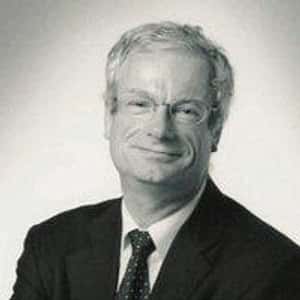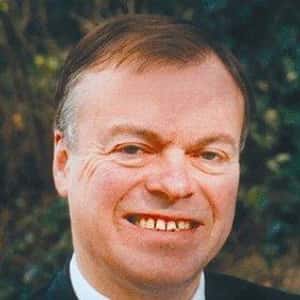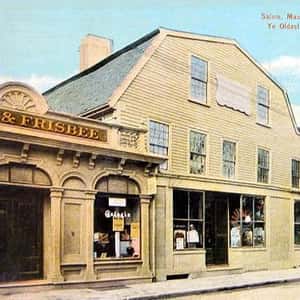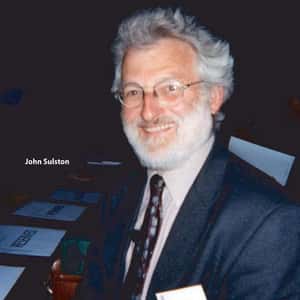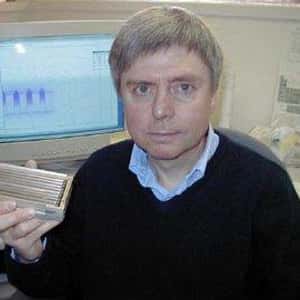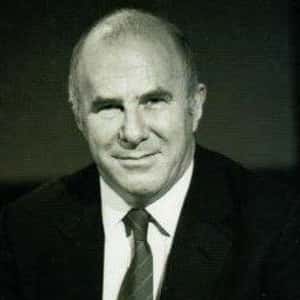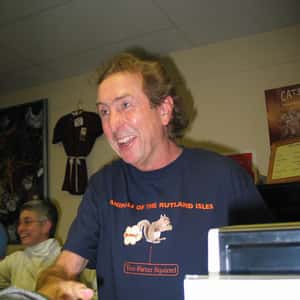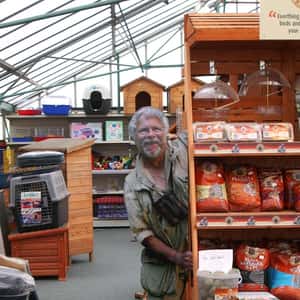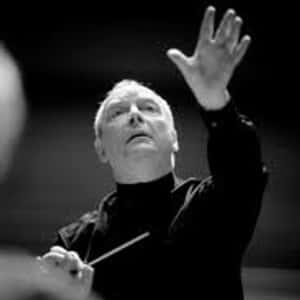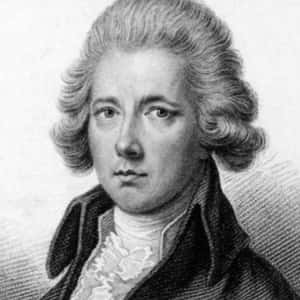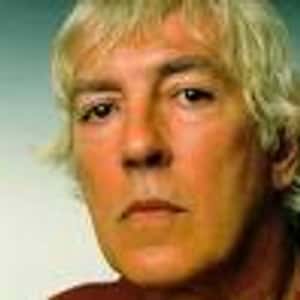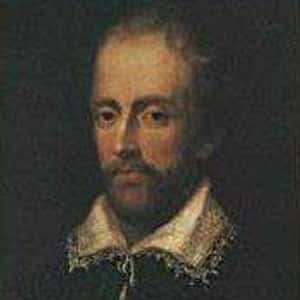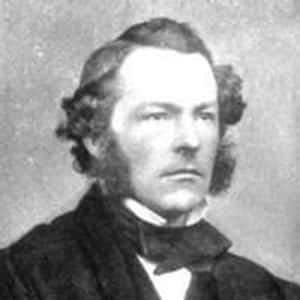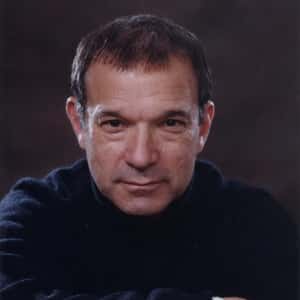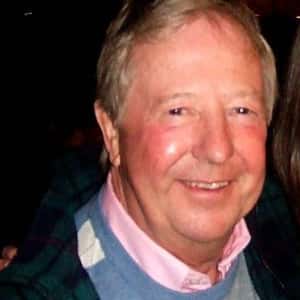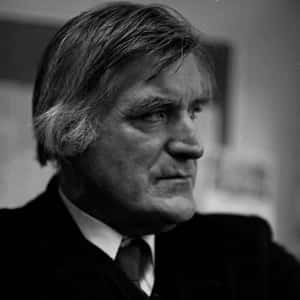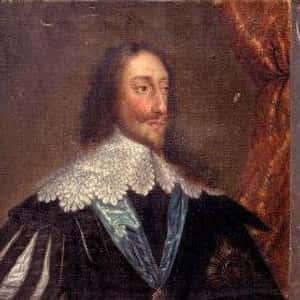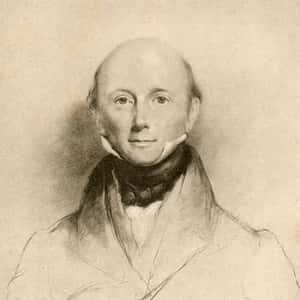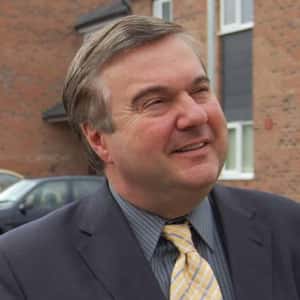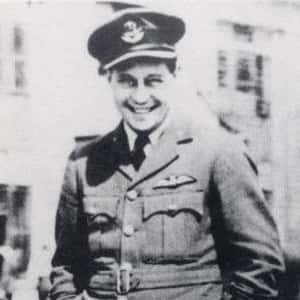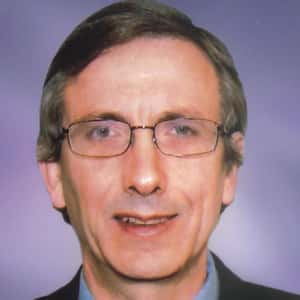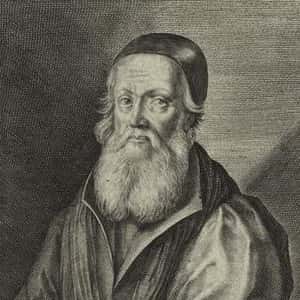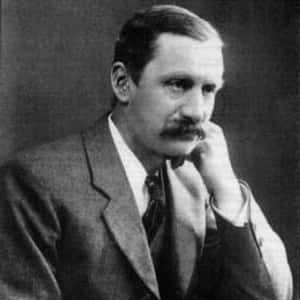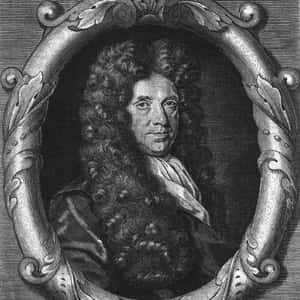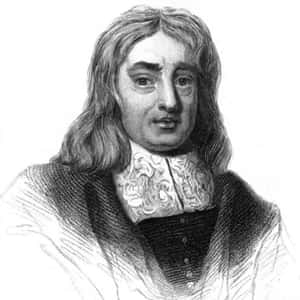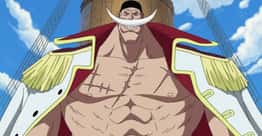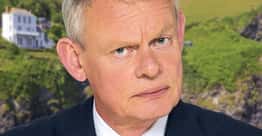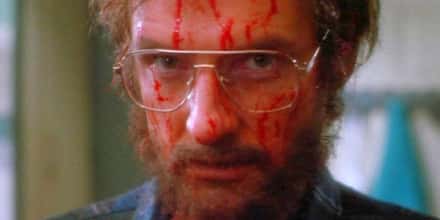Famous Pembroke College, Cambridge Alumni
Voting Rules
People on this list must have gone to Pembroke College, Cambridge and be of some renown.
List of famous alumni from Pembroke College, Cambridge, with photos when available. Prominent graduates from Pembroke College, Cambridge include celebrities, politicians, business people, athletes and more. This list of distinguished Pembroke College, Cambridge alumni is loosely ordered by relevance, so the most recognizable celebrities who attended Pembroke College, Cambridge are at the top of the list. This directory is not just composed of graduates of this school, as some of the famous people on this list didn't necessarily earn a degree from Pembroke College, Cambridge.
Items on this list include Tom Hiddleston and Naomie Harris.
This list answers the questions “Which famous people went to Pembroke College, Cambridge?” and “Which celebrities are Pembroke College, Cambridge alumni?”- PoliticianChristopher Robert Smith, Baron Smith of Finsbury, PC (born 24 July 1951) is a British politician and a peer; a former Member of Parliament (MP) and Cabinet Minister; and former chairman of the Environment Agency. For the majority of his career he was a Labour Party member. He was the first openly gay male British MP, coming out in 1984, and in 2005, the first MP to acknowledge that he is HIV positive.
- PoliticianClive James Charles Betts (born 13 January 1950) is a British Labour Party politician and former economist, who was the Member of Parliament for Sheffield Attercliffe from 1992 to 2010, when he became Member of Parliament for Sheffield South East.
- Politician, TheologianRoger Williams (c. 21 December 1603 – between 27 January and 15 March 1683) was a Puritan minister, theologian, and author who founded Providence Plantations, which became the Colony of Rhode Island. He was a staunch advocate for religious freedom, separation of church and state, and fair dealings with American Indians, and he was one of the first abolitionists.Williams was expelled by the Puritan leaders from the Massachusetts Bay Colony for spreading "new and dangerous ideas", and he established the Providence Plantations in 1636 as a refuge offering what he called "liberty of conscience". In 1638, he founded the First Baptist Church in America, also known as the First Baptist Church of Providence. He studied the Indian languages and wrote the first book on the Narragansett language, and he organized the first attempt to prohibit slavery in any of the American colonies.
- Sir John Edward Sulston (27 March 1942 – 6 March 2018) was a British biologist and academic who won the Nobel Prize in Physiology or Medicine for his work on the cell lineage and genome of the worm Caenorhabditis elegans in 2002 with his colleagues Sydney Brenner and Robert Horvitz. He was a leader in human genome research and Chair of the Institute for Science, Ethics and Innovation at the University of Manchester. Sulston was in favour of science in the public interest, such as free public access of scientific information and against the patenting of genes and the privatisation of genetic technologies.
- ActorSkandar Keynes is an English political adviser and former actor. Best known for starring as Edmund Pevensie in the Chronicles of Narnia film series since 2005, he appeared in all three instalments, The Lion, the Witch and the Wardrobe, Prince Caspian, and most recently The Voyage of the Dawn Treader, which was released on 10 December 2010.
- PoliticianHumphry John Berkeley (21 February 1926 – 14 November 1994) was a British politician noted for his three changes of parties and his early support for gay rights.
- Poet, Novelist, AuthorClive James (born 7 October 1939) is an Australian author, critic, broadcaster, poet, translator and memoirist. He has lived and worked in the United Kingdom since 1962.More Clive James
- #39 of 78 onHistory's Greatest Essayists
- #36 of 62 onWho Is The Most Famous James In The World?
- #21 of 47 onWho Is The Most Famous Clive In The World?
- Television director, Television producer, MusicianEric Idle, born on 29th March 1943 in South Shields, County Durham, England, is a distinguished figure in the world of comedy and entertainment, renowned as an actor, comedian, author, and musician. His early years were marked by tragedy, having lost his father in an air disaster when he was just two years old. Despite such adversity, Idle's innate talent and passion for comedy propelled him into a career that has been both influential and enduring. Idle's career took a turn for the extraordinary when he joined the surreal comedy group "Monty Python" in the late 1960s. As one of the six original members, he participated in writing and performing for the group's acclaimed television series, Monty Python's Flying Circus. His contributions to the group extended beyond the small screen, as he played crucial roles in their feature films, including Monty Python and the Holy Grail and Life of Brian. His unique comedic style, characterized by its wit, wordplay, and musicality, set him apart and made a significant impact on the collective success of the group. In addition to his work with Monty Python, Idle has had a diverse and successful solo career. He ventured into writing, publishing novels such as The Road to Mars and Hello Sailor, showcasing his ability to deliver humor and intrigue in this medium. His musical talents have also been displayed through his creation of Spamalot, a musical adaptation of Monty Python and the Holy Grail, which earned him a Tony Award for Best Musical in 2005.More Eric Idle
- #723 of 752 onThe Greatest Minds of All Time
- #77 of 262 onThe Funniest Stand-Up Comedians Of All Time
- #89 of 365 onThe 100+ Funniest People Of All Time
- Comedian, Musician, ScreenwriterWilliam Edgar Oddie, (born 7 July 1941) is an English writer, comedian, composer, musician, artist, birder, conservationist, television presenter and actor. He became famous as one of The Goodies. A birder since his childhood in Quinton, Birmingham, Oddie has established a reputation as a naturalist, conservationist, and television presenter on wildlife issues. Some of his books are illustrated with his own paintings and drawings. His wildlife programmes for the BBC include: Springwatch/Autumnwatch, How to Watch Wildlife, Wild In Your Garden, Birding with Bill Oddie, Britain Goes Wild with Bill Oddie and Bill Oddie Goes Wild.
- Conductor, Scholar, MusicianChristopher Jarvis Haley Hogwood (10 September 1941 – 24 September 2014) was an English conductor, harpsichordist, writer, and musicologist. Founder of the early music ensemble the Academy of Ancient Music, he was an authority on historically informed performance and a leading figure in the early music revival of the late 20th century.
- ActorNaomie Melanie Harris (born 6 September 1976) is an English actress. She started her career as a child actress, appearing in the television series Simon and the Witch in 1987. She portrayed the voodoo witch Tia Dalma in the second and third Pirates of the Caribbean films, Selena in 28 Days Later (2002), and Winnie Mandela in Mandela: Long Walk to Freedom (2013). She garnered attention for her performance as Eve Moneypenny in the James Bond films Skyfall (2012), Spectre (2015) and the upcoming No Time to Die (2020). In 2016, she starred in the critically acclaimed film Moonlight, a performance which earned her several accolades, including Golden Globe, BAFTA, and Academy Award nominations for Best Supporting Actress. Harris was appointed an Officer of the Order of the British Empire (OBE) in the 2017 New Year Honours for services to drama.More Naomie Harris
- Dig Deeper...Full Cast of Pirates Of The Caribbean: Dead Man's Chest Actors/Actresses
- And Deeper...Full Cast of Skyfall Actors/Actresses
- #1120 of 1,140 onThe Most Beautiful Women In The World
- Cartoonist, Visual ArtistMartin Rowson (born 15 February 1959) is a British editorial cartoonist and writer. His genre is political satire and his style is scathing and graphic. He characterizes his work as "visual journalism". His cartoons appear frequently in The Guardian and the Daily Mirror. He also contributes freelance cartoons to other publications, such as Tribune, Index on Censorship and the Morning Star. He is chair of the British Cartoonists' Association .
- PoliticianWilliam Pitt the Younger (28 May 1759 – 23 January 1806) was a prominent British Tory statesman of the late-eighteenth and early-nineteenth centuries. He became the youngest Prime Minister of Great Britain in 1783 at the age of 24 and the first UK Prime Minister in January 1801. He left office in March 1801, but served as Prime Minister again from 1804 until his death in 1806. He was Chancellor of the Exchequer for all of his time as Prime Minister. Pitt's prime ministerial tenure, which came during the reign of George III, was dominated by major events in Europe, including the French Revolution and the Napoleonic Wars. He is known as "the Younger" to distinguish him from his father, William Pitt, 1st Earl of Chatham, called William Pitt the Elder or simply "Chatham", who had previously served as Prime Minister. Pitt, although often referred to as a Tory, or "new Tory", called himself an "independent Whig" and was generally opposed to the development of a strict partisan political system. He led Britain in the great wars against France and Napoleon. Pitt was an outstanding administrator who worked for efficiency and reform, bringing in a new generation of outstanding administrators. He increased taxes to pay for the great war against France and cracked down on radicalism. To engage the threat of Irish support for France, he engineered the Acts of Union 1800 and tried (but failed) to get Catholic emancipation as part of the Union. He created the "new Toryism", which revived the Tory Party and enabled it to stay in power for the next quarter-century. The historian Asa Briggs argues that his personality did not endear itself to the British mind, for Pitt was too solitary and too colourless, and too often exuded superiority. His greatness came in the war with France. Pitt reacted to become what Lord Minto called "the Atlas of our reeling globe". His integrity and industry and his role as defender of the threatened nation allowed him to inspire and access all the national reserves of strength. William Wilberforce said that, "For personal purity, disinterestedness and love of this country, I have never known his equal." Historian Charles Petrie concludes that he was one of the greatest prime ministers "if on no other ground than that he enabled the country to pass from the old order to the new without any violent upheaval ... He understood the new Britain." For this he is ranked highly amongst British Prime Ministers.
- Comedian, Screenwriter, SatiristPeter Edward Cook (17 November 1937 – 9 January 1995) was an English satirist and comedic actor. He was a leading figure of the British satire boom of the 1960s, and associated with the Anti-Establishment comedic movement that emerged in the United Kingdom in the late 1950s. Referred to as "the father of modern satire" by The Guardian newspaper in 2005, Cook was ranked number one in the Comedians' Comedian, a poll of more than 300 comics, comedy writers, producers, and directors throughout the English-speaking world.More Peter Cook
- #44 of 154 onThe Funniest British and Irish Comedians of all Time
- #84 of 97 onThe Best English Actors of All Time
- #10 of 622 onEvery Person Who Has Hosted 'Saturday Night Live'
- PoetEdmund Spenser (; 1552/1553 – 13 January 1599) was an English poet best known for The Faerie Queene, an epic poem and fantastical allegory celebrating the Tudor dynasty and Elizabeth I. He is recognized as one of the premier craftsmen of nascent Modern English verse, and is often considered one of the greatest poets in the English language.More Edmund Spenser
- #14 of 67 onThe Best English Poets of All Time
- #57 of 342 onThe Greatest Poets of All Time
- #28 of 124 onFamous People Buried at Westminster Abbey
- Mathematician, PhysicistSir George Gabriel Stokes, 1st Baronet, (; 13 August 1819 – 1 February 1903) was an Anglo-Irish physicist and mathematician. Born in County Sligo, Ireland, Stokes spent all of his career at the University of Cambridge, where he was the Lucasian Professor of Mathematics from 1849 until his death in 1903. As a physicist, Stokes made seminal contributions to solid mechanics, including the Navier-Stokes equation, and to physical optics, with notable works on polarization and fluorescence. As a mathematician, he popularised "Stokes' theorem" in vector calculus and contributed to the theory of asymptotic expansions. Stokes, along with Felix Hoppe-Seyler, first demonstrated the oxygen transport function of hemoglobin and showed color changes produced by aeration of hemoglobin solutions. Stokes was made a baronet (hereditary knight) by the British monarch in 1889. In 1893 he received the Royal Society's Copley Medal, then the most prestigious scientific prize in the world, "for his researches and discoveries in physical science". He represented Cambridge University in the British House of Commons from 1887 to 1892, sitting as a Tory. Stokes also served as president of the Royal Society from 1885 to 1890 and was briefly the Master of Pembroke College, Cambridge.
- Literary critic, Professor, AuthorStephen Jay Greenblatt (born November 7, 1943) is an American Shakespearean, literary historian, and author. He has served as the John Cogan University Professor of the Humanities at Harvard University since 2000. Greenblatt is the general editor of The Norton Shakespeare (2015) and the general editor and a contributor to The Norton Anthology of English Literature. Greenblatt is one of the founders of New Historicism, a set of critical practices that he often refers to as "cultural poetics"; his works have been influential since the early 1980s when he introduced the term. Greenblatt has written and edited numerous books and articles relevant to New Historicism, the study of culture, Renaissance studies and Shakespeare studies and is considered to be an expert in these fields. He is also co-founder of the literary-cultural journal Representations, which often publishes articles by new historicists. His most popular work is Will in the World, a biography of Shakespeare that was on the New York Times Best Seller List for nine weeks. He won the Pulitzer Prize for General Non-Fiction in 2012 and the National Book Award for Nonfiction in 2011 for The Swerve: How the World Became Modern.
- Comedian, Screenwriter, ActorTimothy Julian Brooke-Taylor OBE (born 17 July 1940) is an English comedian and actor. He became active in performing in comedy sketches while at Cambridge University, and became President of the Footlights club, touring internationally with the Footlights revue in 1964. Becoming wider known to the public for his work on BBC Radio with I'm Sorry, I'll Read That Again, he moved into television with At Last the 1948 Show working together with old Cambridge friends John Cleese and Graham Chapman. He is most well known as a member of The Goodies, starring in the television series throughout the 1970s and picking up international recognition in Australia and New Zealand. He has also appeared as an actor in various sitcoms, and has been a panellist on I'm Sorry I Haven't a Clue for over 40 years.
- Poet, Writer, PlaywrightEdward James Hughes (17 August 1930 – 28 October 1998) was an English poet, translator, and children's writer. Critics frequently rank him as one of the best poets of his generation, and one of the twentieth century's greatest writers. He served as Poet Laureate from 1984 until his death. In 2008 The Times ranked Hughes fourth on their list of "The 50 greatest British writers since 1945".Hughes was married to American poet Sylvia Plath from 1956 until her suicide in 1963 at the age of 30. Some admirers of Plath and radical feminist critics blamed him for her death after the revelation of letters written by Plath between 18 February 1960 and 4 February 1963, which claim that Hughes beat Plath two days before she had a miscarriage in 1961, and that he also told Plath he wished that she was dead. His last poetic work, Birthday Letters (1998), explored their complex relationship. These poems make reference to Plath's suicide, but none addresses directly the circumstances of her death. A poem discovered in October 2010, "Last Letter", describes what happened during the three days before her death.
- Chemical engineer, Politician, TeacherGeorge Maxwell Richards, (1 December 1931 – 8 January 2018), was a Trinidadian and Tobagonian politician who served as the fourth President of Trinidad and Tobago, in office from 2003 to 2013. He was the first President of Trinidad and Tobago and head of state in the Anglophone Caribbean to have Amerindian ancestry.A chemical engineer by training, Richards was Principal of the St. Augustine campus of the University of the West Indies in Trinidad from 1984 to 1996. He previously worked for Shell Trinidad Ltd before joining the University of the West Indies in 1965. He was sworn into office as President on 17 March 2003 for a five-year term.
- Poet, TeacherRichard Crashaw (c. 1613 – 21 August 1649), was an English poet, teacher, Anglican cleric and Catholic convert, who was among the major figures associated with the metaphysical poets in seventeenth-century English literature. Crashaw was the son of a famous Anglican divine with Puritan beliefs who earned a reputation as a hard-hitting pamphleteer and polemicist against Catholicism. After his father's death, Crashaw was educated at Charterhouse School and Pembroke College, Cambridge. After taking a degree, Crashaw taught as a fellow at Peterhouse, Cambridge and began to publish religious poetry that expressed a distinct mystical nature and an ardent Christian faith. Crashaw was ordained as a clergyman in the Church of England and in his theology and practice embraced the High Church ritual reforms enacted by Archbishop Laud. Rev. Crashaw's became infamous among English Puritans for his use of religious art to decorate his church, for his devotion to the Virgin Mary, for his use of Catholic vestments, and for many other reasons. During these years, however, the University of Cambridge was a hotbed for such practices and for Royalist politics. Adherents of both positions were violently persecuted by Puritan forces during and after the English Civil War (1642–1651). When Puritan General Oliver Cromwell seized control of the city in 1643, Crashaw was ejected from his post and became a refugee in France and in the Papal States. He found employment as an attendant to Cardinal Giovanni Battista Maria Pallotta at Rome. While in exile he converted from Anglicanism to Catholicism. In April 1649, Cardinal Pallotta appointed Crashaw to a minor benefice as canon of the Shrine of the Holy House at Loreto where he died suddenly four months later. Crashaw's poetry, although often categorised with those of the contemporary English metaphysical poets, exhibits similarities with the Baroque poets and influenced in part by the works of Italian and Spanish mystics. It draws parallels "between the physical beauties of nature and the spiritual significance of existence". His work is said to be marked by a focus toward "love with the smaller graces of life and the profounder truths of religion, while he seems forever preoccupied with the secret architecture of things".
- GeologistGeorge Bellas Greenough FRS FGS (18 January 1778 – 2 April 1855) was a pioneering English geologist. He is best known as a synthesizer of geology rather than as an original researcher. Trained as a lawyer, he was a talented speaker and his annual addresses as founding president of the Geological Society of London were influential in identifying and guiding contemporary geological research. Greenough advocated an empirical approach to the early science; his scepticism of theoretical thinking courted controversy amongst some contemporaries, especially his doubts of the usefulness of fossils in correlating strata. He compiled a geological map of England and Wales, published in 1820 and in the penultimate year of his life used similar methods to produce the first geological map of British India. Greenough characterised himself as follows: bright eyes, silver hair, large mouth, ears and feet; fondness for generalisation, for system and clearliness; great diligence, patience and zeal; goodnature but hasty; firmness of principle; hand for gardening.
- BarristerSir Oliver Heald (born 15 December 1954) is a British barrister and Conservative politician, who currently serves as Member of Parliament (MP) for North East Hertfordshire.
- BarristerSquadron Leader Roger Joyce Bushell RAF (30 August 1910 – 29 March 1944) was a South African-born British military aviator. He is best known as the mastermind of the "Great Escape" from Stalag Luft III in 1944, but was one of the men recaptured and subsequently murdered by the Gestapo.
- MathematicianSir Simon Kirwan Donaldson (born 20 August 1957), is an English mathematician known for his work on the topology of smooth (differentiable) four-dimensional manifolds and Donaldson–Thomas theory. He is currently a permanent member of the Simons Center for Geometry and Physics at Stony Brook University and a Professor in Pure Mathematics at Imperial College London.
- Mathematician, StatisticianSir John Frank Charles Kingman (born 28 August 1939) is a British mathematician. He served as N. M. Rothschild and Sons Professor of Mathematical Sciences and Director of the Isaac Newton Institute at the University of Cambridge from 2001 until 2006, when he was succeeded by David Wallace. He is known for developing the mathematics of the Coalescent theory, a theoretical model of inheritance, which is fundamental to modern population genetics.
- Edmund Grindal (c. 1519 – 6 July 1583) was an English bishop of the Church of England who successively held the posts of Bishop of London, Archbishop of York and Archbishop of Canterbury during the reign of Elizabeth I. Although born far away from the centres of political and religious power, he had risen rapidly in the church during the reign of Edward VI. He was nominated as Bishop of London, but the death of the King prevented him taking up the post and along with other Marian exiles he fled to the continent during the reign of Mary I. On the accession of Elizabeth I he returned and resumed his rise in the church, culminating in his appointment to the highest office. This was a time of great change in the English church following the Elizabethan settlement, which established the relationship of monarch, church, state and subjects, and required considerable statesmanship and diplomacy in the context of the many religious factions and the strong will of the monarch. Although he has historically not been regarded the most notable of church leaders, his reputation has been revived by modern critical scholarship, which maintains he had the support of his fellow bishops and led the way for how the English Church would develop in the early 17th century.
William Burnside
MathematicianThis English mathematician is sometimes confused with the Irish mathematician William Snow Burnside (1839–1920). William Burnside (2 July 1852 – 21 August 1927) was an English mathematician. He is known mostly as an early researcher in the theory of finite groups. Burnside was born in London in 1852. He went to school at Christ's Hospital until 1871 and attended St. John's and Pembroke Colleges at the University of Cambridge, where he was the Second Wrangler in 1875. He lectured at Cambridge for the following ten years, before being appointed professor of mathematics at the Royal Naval College in Greenwich. While this was a little outside the main centres of British mathematical research, Burnside remained a very active researcher, publishing more than 150 papers in his career. Burnside's early research was in applied mathematics. This work was of sufficient distinction to merit his election as a fellow of the Royal Society in 1893, though it is little remembered today. Around the same time as his election his interests turned to the study of finite groups. This was not a widely studied subject in Britain in the late 19th century, and it took some years for his research in this area to gain widespread recognition. The central part of Burnside's group theory work was in the area of group representations, where he helped to develop some of the foundational theory, complementing, and sometimes competing with, the work of Ferdinand Georg Frobenius, who began his research in the subject during the 1890s. One of Burnside's best known contributions to group theory is his paqb theorem, which shows that every finite group whose order is divisible by fewer than three distinct primes is solvable. In 1897 Burnside's classic work Theory of Groups of Finite Order was published. The second edition (pub. 1911) was for many decades the standard work in the field. A major difference between the editions was the inclusion of character theory in the second.Burnside is also remembered for the formulation of Burnside's problem that concerns the question of bounding the size of a group if there are fixed bounds both on the order of all of its elements and the number of elements needed to generate it, and also for Burnside's lemma (a formula relating the number of orbits of a permutation group acting on a set with the number of fixed points of each of its elements) though the latter had been discovered earlier and independently by Frobenius and Augustin Cauchy. He received an honorary doctorate (D.Sc.) from the University of Dublin in June 1901.In addition to his mathematical work, Burnside was a noted rower. While he was a lecturer at Cambridge, he also coached the rowing crew team. In fact, his obituary in The Times took more interest in his athletic career, calling him "one of the best known Cambridge athletes of his day". He is buried at the West Wickham Parish Church in South London.- Physician, BotanistNehemiah Grew (26 September 1641 – 25 March 1712) was an English plant anatomist and physiologist, known as the "Father of Plant Anatomy". Grew was the only son of Obadiah Grew (1607–1688), Nonconformist divine and vicar of St Michaels, Coventry, and was born in Warwickshire. He graduated at Pembroke College, Cambridge in 1661, and ten years later took the degree of MD at Leiden University, his thesis being Disputatio medico-physica de liquore nervoso. He began observations on the anatomy of plants in 1664, and in 1670 his essay, The Anatomy of Vegetables begun, was communicated to the Royal Society by Bishop Wilkins, on whose recommendation he was in the following year elected a fellow. In 1672, when the essay was published, he settled in London, and soon acquired an extensive practice as a physician. In 1673 he published his Idea of a Phytological History, which consisted of papers he had communicated to the Royal Society in the preceding year, and in 1677 he succeeded Henry Oldenburg as secretary of the society. He edited the Philosophical Transactions in 1678–1679, and in 1681 he published by request a descriptive catalogue of the rarities preserved at Gresham College, with which were printed some papers he had read to the Royal Society on the Comparative Anatomy of Stomachs and Guts. In 1682 appeared his great work on the Anatomy of Plants, which also was largely a collection of previous publications. It was divided into four books, Anatomy of Vegetables begun, Anatomy of Roots, Anatomy of Trunks and Anatomy of Leaves, Flowers, Fruits and Seeds, and was illustrated with eighty-two plates, while appended to it were seven papers mostly of a chemical character. The Anatomy is especially notable for its descriptions of plant structure. He described nearly all the key differences of morphology of stem and root, showed that the flowers of the Asteraceae are built of multiple units, and correctly hypothesized that stamens are male organs. Anatomy of Plants also contains the first known microscopic description of pollen. Much of Grew's pioneering work with the microscope was contemporary with that of Marcello Malpighi and the two reportedly borrowed freely from one another. Grew's work on pollen was more extensive than that of Malpighi, leading to the discovery that although all pollen is roughly globular, size and shape is different between species; however, pollen grains within a species are all alike. This discovery is central to the field of palynology.Among his other publications were Seawater made Fresh (1684), the Nature and Use of the Salt contained in Epsom and such other Waters (1697), which was a rendering of his Tractatus de salis (1693), and Cosmologia Sacra (1701). Linnaeus named a genus of trees Grewia in his honour. At Pembroke there is a stained-glass representation of a page of his work in the College's Library. Grew is also considered to be one of the pioneers of dactyloscopy. He was the first person to study and describe ridges, furrows, and pores on hand and foot surfaces. In 1684, he published accurate drawings of finger ridge patterns.
- PhysicianThomas Sydenham (10 September 1624 – 29 December 1689) was an English physician. He was the author of Observationes Medicae which became a standard textbook of medicine for two centuries so that he became known as 'The English Hippocrates'. Among his many achievements was the discovery of a disease, Sydenham's Chorea, also known as St Vitus Dance.


